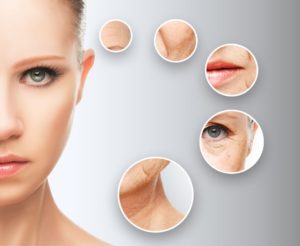From improving skin health to promoting joint flexibility, collagen plays a critical role in various biological functions. In this article, we’ll explore effective and natural ways to boost collagen production, promoting an overall healthier and younger look.
What is Collagen and Why is it Essential to Boost its Levels?
Collagen, a vital protein, is a key component of the human skin, tendons, and connective tissues and plays a significant role in maintaining skin elasticity and hydration. As we age, collagen production decreases, leading to signs of ageing, such as fine lines and wrinkles. Hence, it’s crucial to understand and implement ways to boost collagen naturally to maintain skin health and flexibility.
Understanding the Vital Role of Collagen in the Body
Collagen is one of the most abundant proteins in the body. It is responsible for giving our skin its strength and elasticity, while also helping replace dead skin cells. It helps to produce collagen in areas where it is needed, maintaining the integrity of our skin, bones, and connective tissues.
Recognizing the Signs of Depleted Collagen Levels
Loss of skin elasticity, wrinkles, and reduced joint flexibility are some of the signs of depleted collagen levels. In addition, people may experience thinner hair and nails, weakened muscles, and gut health issues. These are signs that the production of collagen has decreased in the human skin and that intervention is necessary to boost collagen levels.
Reasons to Naturally Boost Collagen Production
Boosting collagen levels not only helps smoothen fine lines and wrinkles but also promotes healthy skin and joints. Natural bolstering of collagen also aids in skin hydration, maintains skin structural integrity, and supports digestion and gut health. Moreover, elevated collagen levels can help improve the quality of sleep.
Nutrition: Eat Collagen-Boosting Foods and Supplements
Eating a balanced diet rich in collagen-boosting foods is a great way to increase collagen levels. Hydrolyzed collagen, also known as collagen peptides, are easily digestible and are freely available in many types of collagen-rich foods and supplements.
Top Collagen-Rich Foods to Include in Your Diet
Bone broth, citrus fruits, and leafy greens are some of the collagen-rich foods you should include in your diet. Bell peppers, garlic, and fish are other excellent sources that help boost collagen production.
Exploring the Benefits of Taking Collagen Supplements
Taking collagen supplements is a simple and effective way to boost your collagen levels. It promotes skin health and helps combat lines and wrinkles. Collagen supplementation, particularly collagen drink, can also support joint health, improve gut function, and boost your overall well-being.
Vitamin C: A Crucial Element to Boost Collagen Levels
Vitamin C is crucial for collagen synthesis. A healthy intake of vitamin C helps stimulate collagen production, resulting in healthier skin, hair, nails, and joints. Consuming it in conjunction with collagen supplements can further enhance its benefits.
The Impact of Sunscreen and Skin Hydration on Collagen Production
Excessive sun exposure can degrade collagen in your face and other parts of the skin, leading to premature skin aging. Using sunscreen and keeping the skin hydrated can have a positive impact on collagen and elastin production and preserve skin health.
Protecting Collagen from the Sun: The Importance of Sunscreen
Applying sunscreen helps protect against the harmful effects of the sun, which can degrade collagen. Regular use of a suitable sunscreen can prevent premature skin aging and collagen degradation, thereby helping conserve collagen in the skin.
Hyaluronic Acid: The Hydrating Agent That Boosts Collagen
Hyaluronic acid serves as a hydrating agent for the skin. It attracts and retains moisture, which is essential for producing collagen and maintaining skin elasticity. Moreover, the combination of hyaluronic acid and collagen boosts skin health by reducing fine lines and wrinkles.
How Hydration Contributes to Collagen and Elastin Production
Hydration plays an instrumental role in maintaining skin health. Adequate hydration stimulates collagen and elastin production, maintaining and improving skin elasticity over time. It creates plumper and healthier skin, reducing signs of aging like fine lines and wrinkles.
Can Peptides and Amino Acids Help Boost Collagen Production?
Peptides and amino acids are essential components of collagen. They can naturally boost collagen production when incorporated into your diet or skincare routine. The inclusion of these building blocks can aid in collagen synthesis, providing visible improvements in skin texture and firmness.
Understanding the Role of Peptides in Boosting Collagen
Peptides are short chains of amino acids that act as building blocks for proteins, including collagen. When applied topically or ingested, these peptides help boost collagen production and improve skin elasticity, bringing back the youthful glow to your skin.
Amino Acids: The Building Blocks for Collagen
Amino acids are the building blocks that form proteins, including collagen. A diet rich in amino acids can help stimulate the body to produce collagen. Some of these important amino acids include lysine, proline, and glycine.
Choosing a Collagen-Boosting Peptide Serum or Supplement
Selecting the right collagen-boosting peptide serum or supplement can significantly aid in halting the skin aging process. Opt for products that contain collagen peptides and are enriched with antioxidant properties to fight signs of ageing effectively.
Physical Activities: An Effective Way to Boost Collagen Production
Regular exercise increases blood flow which helps deliver oxygen and nutrients to the skin, thus stimulating the production of collagen. Activities like yoga and stretching can enhance collagen production, build muscle tone, and increase overall body strength.
Exercises to Increase Collagen Production in Face and Body
Facial yoga and resistance training exercises can increase collagen production in your face and body. Together with a balanced diet and a healthy lifestyle, these exercises can help enhance the way your skin looks and feels.
How Tendon and Connective Tissue Health Relates to Collagen
Collagen plays a significant role in maintaining the health of tendons and connective tissues. It provides structure to these tissues, assuring their smooth and efficient functioning. Regular exercise can help boost collagen production and, in turn, improve the health of tendons and connective tissues.
Collagen and Elasticity: Benefits of Stretching and Yoga
Stretching and yoga exercises enhance the body’s natural collagen production, improving skin elasticity, and reducing the signs of ageing. Regular practice can help maintain younger-looking, radiant skin, and a flexible, healthier body.
Boosting collagen production naturally is an essential part of maintaining youthful skin and a healthy body. From dietary adjustments to regular sun protection, these five ways to boost collagen production provide a front line of defense against the signs of ageing. So why wait? Start today and help your body produce collagen effectively for a more vibrant and youthful appearance.
*Information in this article is not medical advice and may not be factually accurate. It is intended for entertainment purposes only. Consult with a physician before attempting any tips in this blog post and to get the most up to date factual data about any procedure or treatment.














